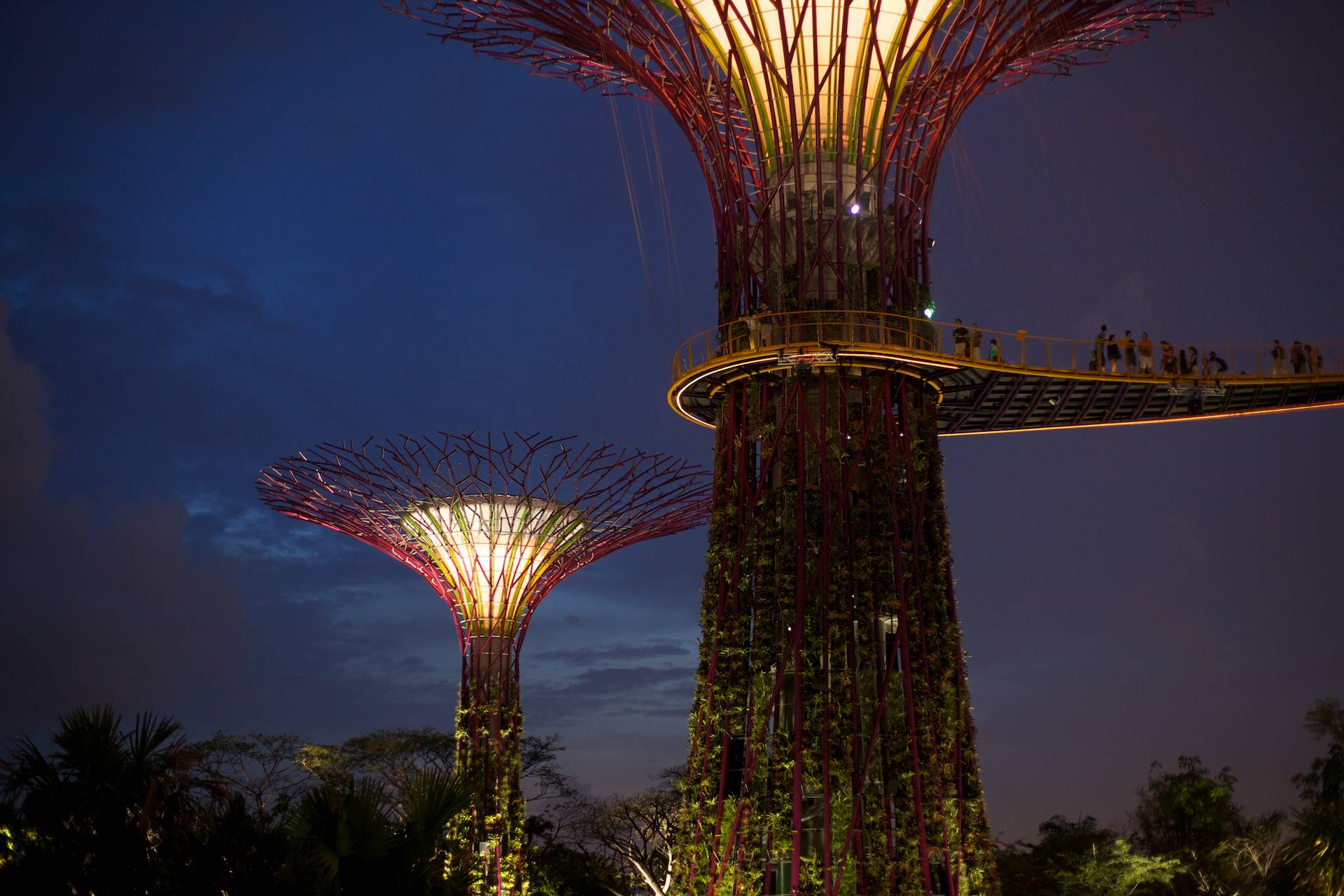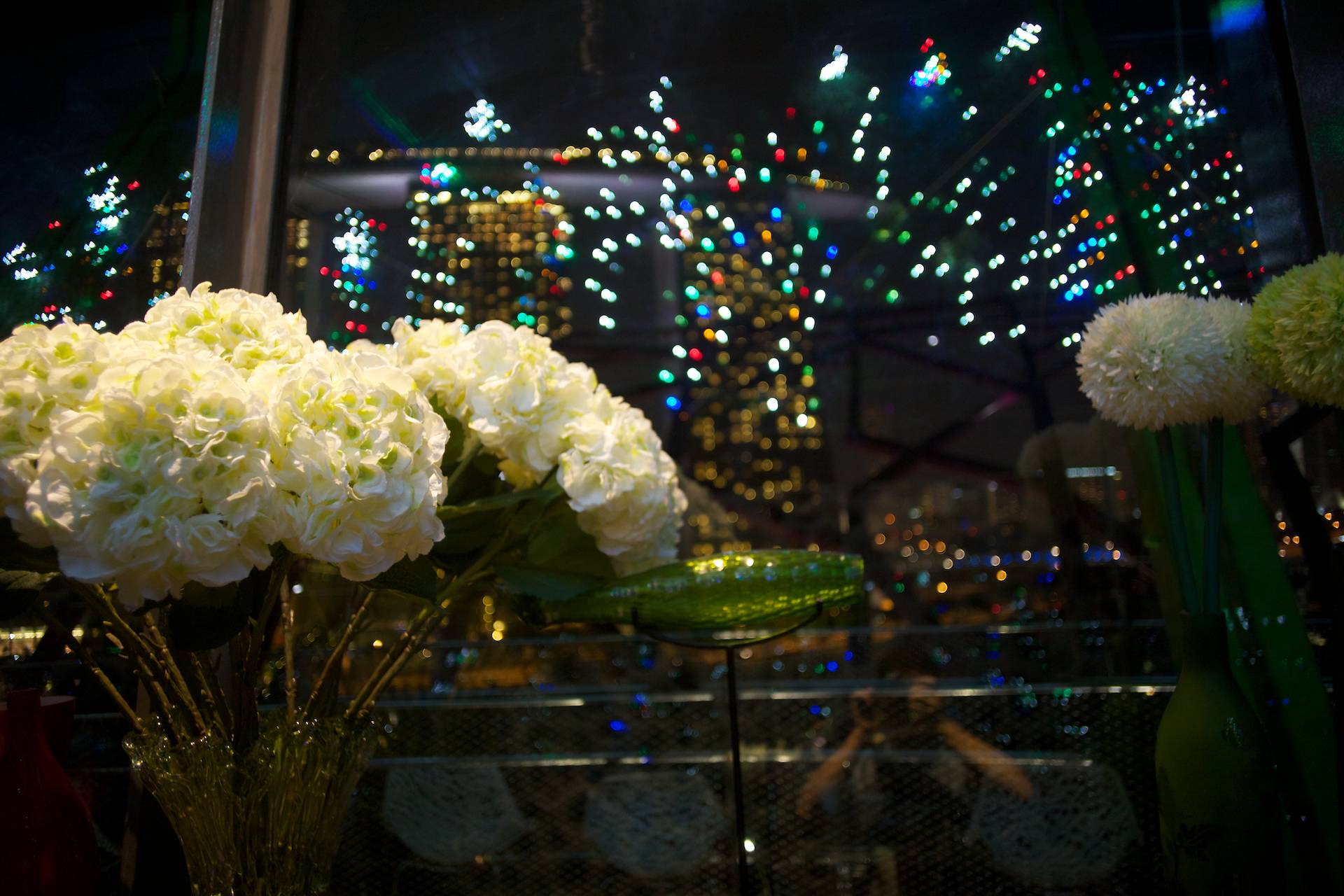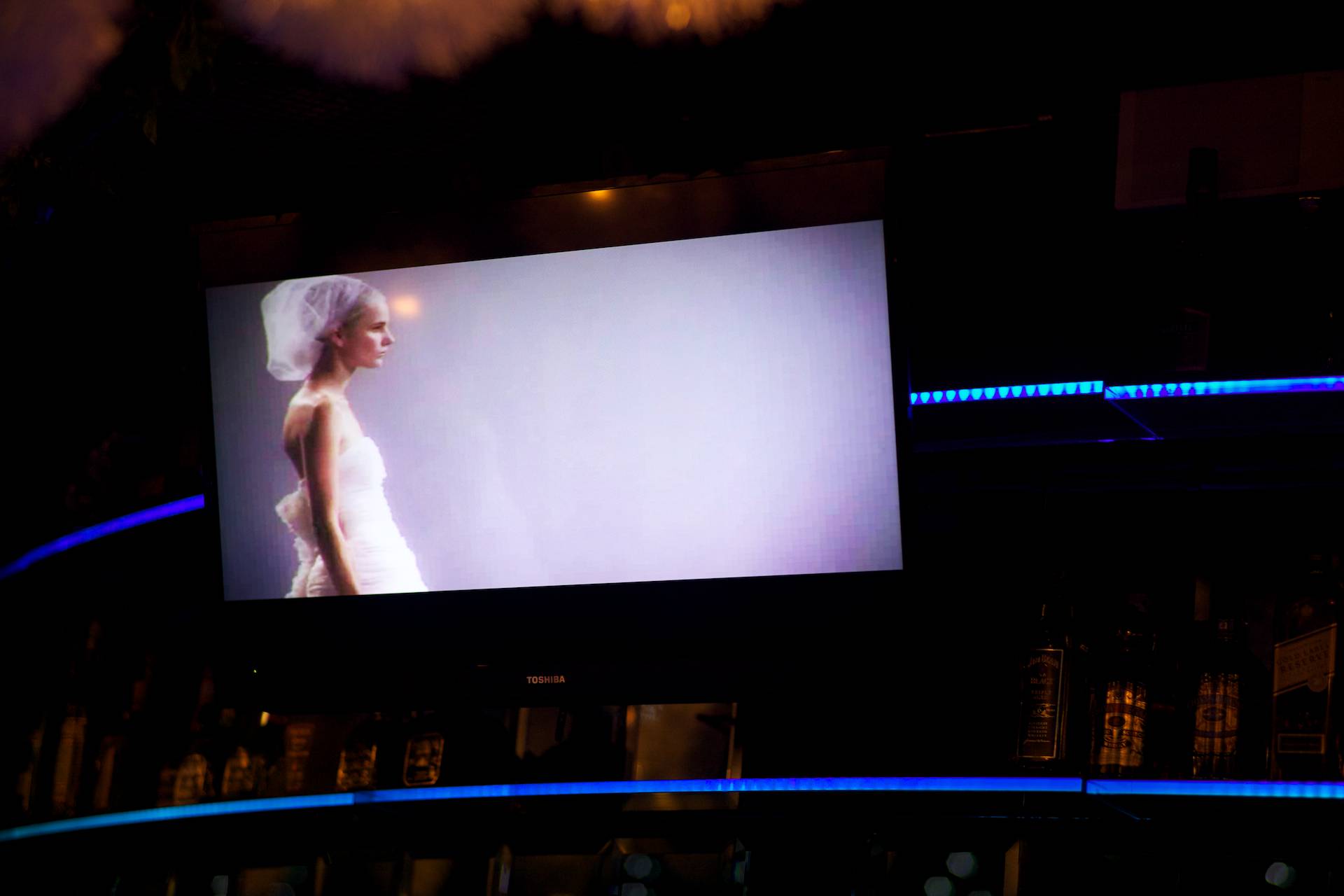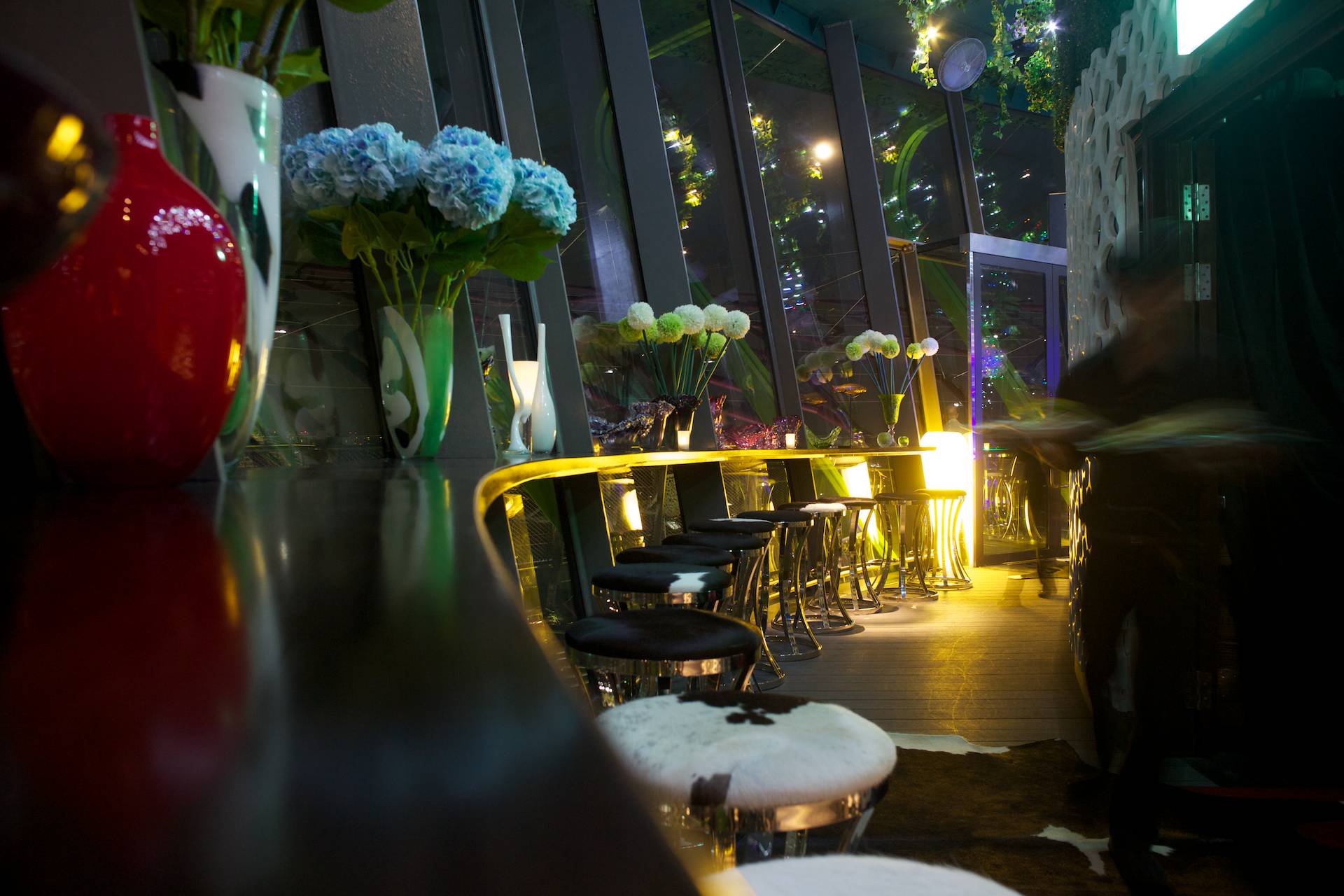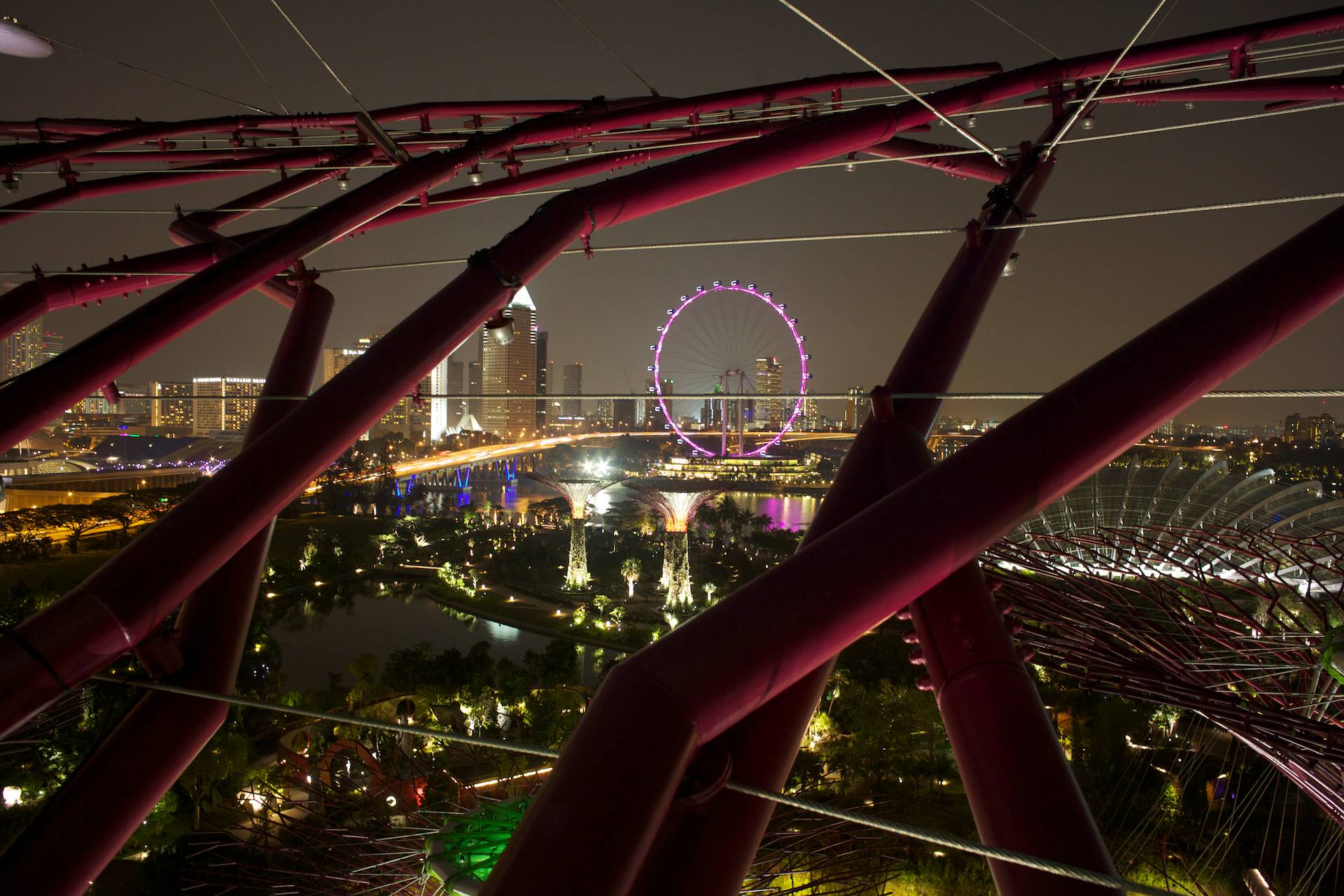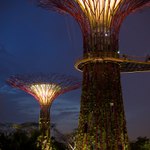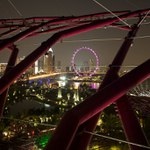Pandora City
A few months ago, Singapore’s Gardens by the Bay opened to the public, a large park on reclaimed land at the island’s southern tip. Advertised with much fanfare as an important step towards the transformation of Singapore from a “Garden City” to a “City in a Garden”, the park features cooled conservatories and a grove of “Supertrees” – 25 and 50 metre high steel structures that will eventually be overgrown and form an artificial canopy of flowers and climbers. The canopy is envisioned to regulate temperature and provide shade; photovoltaic systems mimic photosynthesis and rainwater is harvested for irrigation.
We buy an 18-dollar coupon for an aperitif on the treetop bar of one of the Supertrees. An elevator lifts us to the canopy. Artificial flowers abound and the golden face of a Buddha looks down on us, embowed in artificial vines. Even the flickering tea-lights on the table are LED-powered, much to the delight of my little daughter who touches them carefully, stunned by the magic trick. A large flatscreen shows an eternal parade of young models walking down a runway. The glamour of Fashion TV blends naturally with the surreal treetop shelter and the view of the city’s illuminated financial district.
Singapore, just north of the equator, has developed a special relationship to nature. Constant gardening is required to prevent the tropical forest from recapturing the city. At the same time, the city state has invested much in recreational facilities to make the tamed nature accessible – a bird park, a large zoo, and several treetop walkways allow for its consumption. The Gardens by the Bay, however, take the relation of humans and nature to a new level. They manifest a vision of a more potent, more stunning, and less messy incarnation of Singapore’s tropical surroundings. An avatar of nature itself. Welcome to Pandora City.
Avatara is originally a Sanskrit term that stands for the voluntary descent of a deity to the world with all its illusions – its maya. But for us contemporary denizens of planet earth, the term avatar rather stands for the little images representing our identities in cyberspace, or maybe James Cameron’s Hollywood version of an avatar descending to Planet Pandora in order to save the native Na’vi. Gazing across from the Supertree’s platform to Singapore's skyline, however, feels so absurdly real. The canopy bar provides a vantage point onto the 21st century’s hyperreal maya – the lungs of global capitalism.
And the natives, where are the natives? – That’s us.
Privacy Policy
Plain and simple: I take the principle of minimal data collection serious and try hard not to collect or process any personal data beyond the basics required to serve and maintain the website.
Specifically,
- We do not use cookies.
- We do not use third party analytics.
- There is no contact form that would allow you to enter personal data.
- We do not use advertising to run this website.
In order to serve this website, your IP address and information about your browser, operating system and screen resolution need to be collected and processed. theotherimage.com is a simple, handcrafted, static website hosted by Netlify. It uses fonts by Adobe Fonts (formerly Typekit). Both Netlify and Adobe automatically collect usage data, either generated by the use of this website or from the service infrastructure itself. This data is used for accounting and analytic purposes as well as for technical maintenance by these two companies. Neither Netlify nor Adobe use cookies to track you. Specifics can be found in their respective privacy policies.
The videos on this website are hosted by Vimeo. Depending on your browser configuration, Vimeo may use cookies and other tracking technologies as stated in their respective privacy policies.
If you have any questions about this privacy policy, please write to: Martin Saxer, LMU Munich, Department of Social and Cultural Anthropology, Oettingenstr. 67, 80538 Munich, Germany.
This privacy policy has been updated on 30 December 2018.
![[ the other image ]](/images/logo/toi-logo_2x.png)
